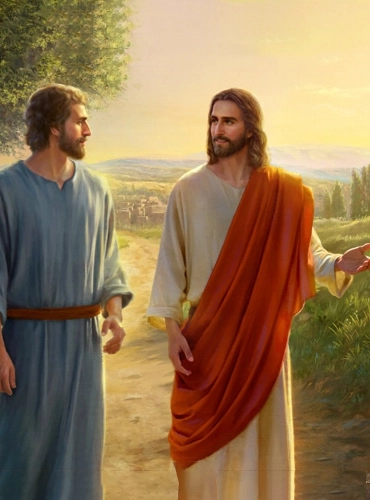Tuesday of the Fourteenth Week in Ordinary Time –Mt 9:32-38
Today’s Gospel presents us a very profound vision of Jesus Christ and our place in the world. We can consider three things: first, what Jesus sees and feels, second, what He does, and third, what we need to do. What Jesus feels, what He does, and what it means for us.
Matthew tells us that “at the sight of the crowds, his heart was moved with pity for them because they were troubled and abandoned, like sheep without a shepherd.” This tells us a number of things: first, what is it that Jesus sees? “The troubled and abandoned crowds”: these words are very powerful and descriptive. The word for troubled literally means skinned, like skinned alive, or mangled. The word for abandoned means cast aside, thrown off.
Jesus isn’t blind to the sufferings around Him. He sees them and, as true God and true man, He sees and experiences that suffering more deeply than anyone else. As Pope Benedict XVI wrote, “Bernard of Clairvaux coined the marvelous expression: Impassibilis est Deus, sed non incompassibilis—God cannot suffer, but He can suffer with. Man is worth so much to God that he himself became man in order to suffer with man in an utterly real way—in flesh and blood—as is revealed to us in the account of Jesus’s Passion.” Indeed, the word for moved with pity in Greek is used in a few parables, but otherwise only for Jesus.
What is it that Jesus does? He casts out demons, teaches, proclaims the Good News, and heals “every disease and illness.” He goes about doing good, and helping. It’s interesting that Jesus could’ve healed everyone at a word, at a distance, but He doesn’t. He Himself goes about doing good, personally making contact with all those people.
However, Jesus sees the great need and tells His listeners: “The harvest is abundant but the laborers are few; so ask the master of the harvest to send out laborers for his harvest.” Here, there are two things that call our attention. First, even in Jesus’ day, there was a need for laborers, for people to help Jesus in His work. Again, that need is not absolute, meaning, that Jesus couldn’t have done it in another way, but He wants us to work. For some, that means the calling of our vocations to be co-operators in the Lord’s vineyard, but for all of us, there is a request: “Ask the master of the harvest to send out laborers.” Pray for vocations. If there was anything that was more effective than this, Jesus would’ve taught it, but He didn’t. He said simply to pray. This remains our constant calling: to pray for vocations. Jesus Himself knows the need; He sees it, and better than we do. He also want to help, and all He asks is that we pray for more laborers. God wants this; the harvest is “His.” All we need to do is to desire the same, and to pray.
We can ask ourselves: how well do we trust in Christ’s love for us, that He knows our sufferings and has compassion on them? Today, let us ask, through the intercession of Mary, Health of the Sick, for the grace to always pray for vocations, and to never forget that Christ knows our sufferings and is with us in the midst of them.






